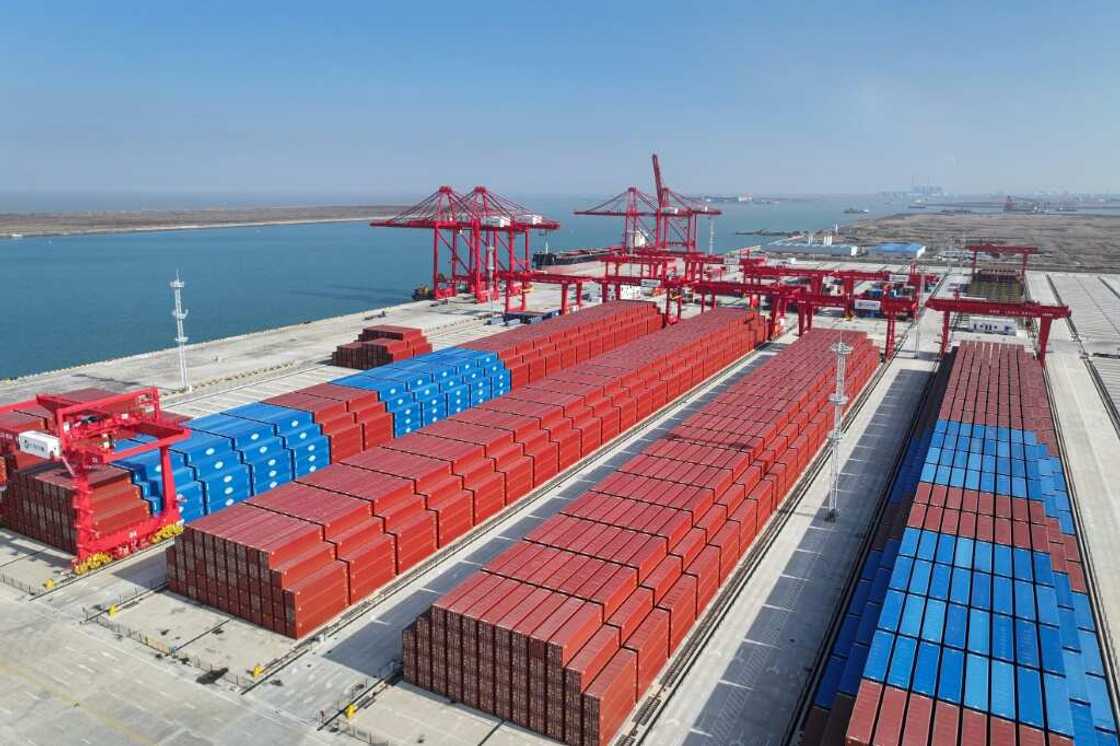China, Russia trade soared in 2023 as commerce with US sank

Source: AFP
Trade between China and Russia hit a record high in 2023, official data from Beijing showed on Friday, as commerce with the United States fell for the first time in four years on the back of geopolitical tensions.
China-Russia trade reached more than $240 billion, customs figures showed, overshooting a goal of $200 billion set by the neighbours in bilateral meetings last year.
The figure is a record for the two countries, who have grown closer politically and economically since Moscow's invasion of Ukraine in 2022.
Beijing has drawn criticism from Western countries for its stance on the Ukraine war, on which China insists it is neutral.
It has refused to criticise Moscow's invasion.
The trade figures represented a year-on-year increase of 26.3 percent, according to the data.
PAY ATTENTION: Click “See First” under the “Following” tab to see Legit.ng News on your Facebook News Feed!
In contrast, trade between the US and China fell for the first time since 2019.
Commerce with the United States was valued at $664 billion last year, down 11.6 percent from 2022.
Wang Lingjun, vice minister of the General Administration of Customs, told a news conference that the country's trade would face more hurdles in 2024.
"The complexity, severity and uncertainty of the external environment are on the rise, and we need to overcome the difficulties and make more efforts to further promote the growth of foreign trade," he said.
The figures also showed China's exports fell 4.6 percent over the year, the first retreat since 2016, while imports were down 5.5 percent.
Friday also saw gloomy economic figures on the domestic front, with data from the National Bureau of Statistics (NBS) showing deflation in China continued for the third straight month in December.
The consumer price index (CPI) fell 0.3 percent on-year.
China slipped into deflation in July for the first time since 2021 and following a brief rebound the following month, prices have been in constant decline since September.
Analysts surveyed by Bloomberg expected a drop of 0.4 percent last month, having sunk 0.5 percent in November.
While deflation suggests goods were cheaper, it poses a threat to the broader economy as consumers tend to postpone purchases, hoping for further reductions.
A lack of demand can then force companies to cut production, freeze hiring or lay off workers, while potentially also having to discount existing stocks -- dampening profitability even as costs remain the same.
By way of comparison, inflation in the United States stood at 3.4 percent in December.
Inflation in China for the whole of 2023 rose by an average of 0.2 percent, in contrast to other major economies, which saw prices soar once again.
The NBS also said producer prices sank 2.7 percent, the 15th consecutive month of declines.
The PPI index, which measures the cost of goods leaving factories and provides an insight into the health of the economy, fell three percent in November.
PAY ATTENTION: Donate to Legit Charity on Patreon. Your support matters!
Source: AFP





